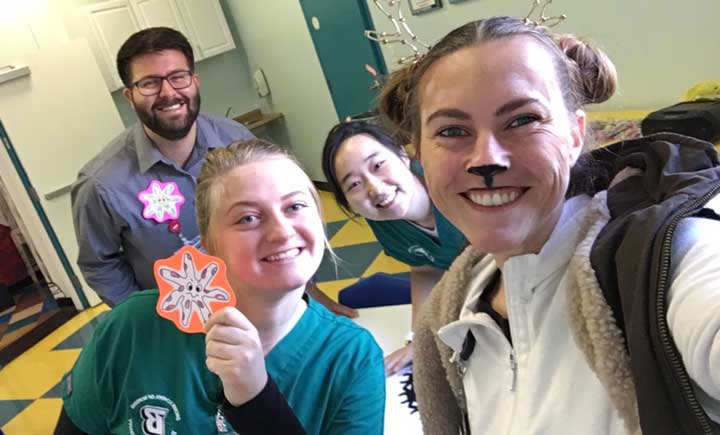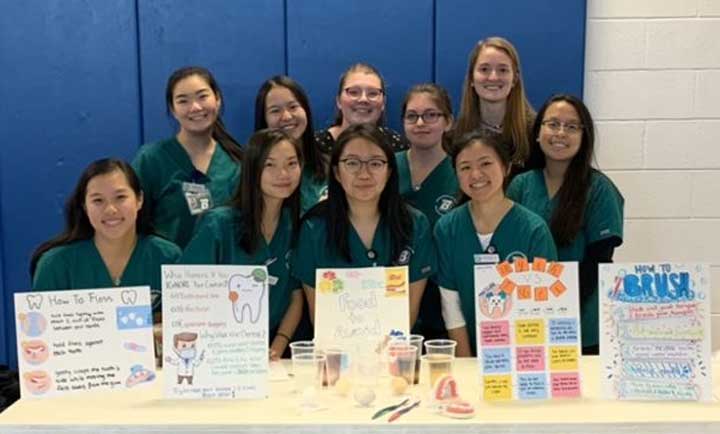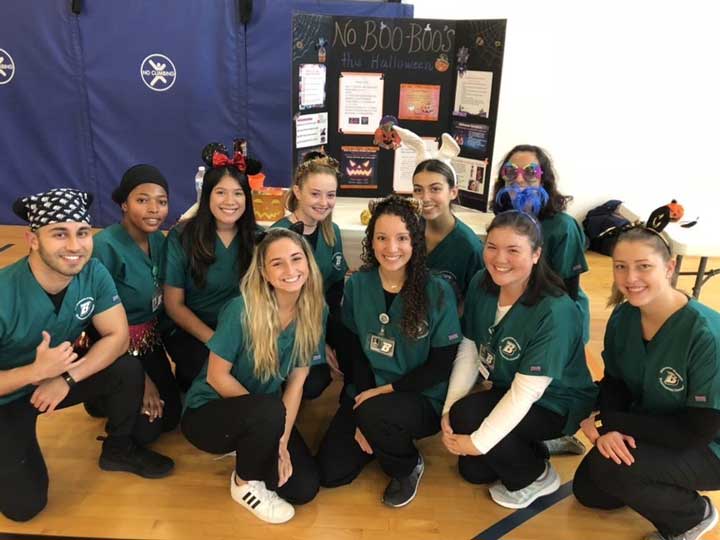Nursing students gain hands-on experience working with children

As part of their coursework for NURS 322, The Client System of Nursing, 184 undergraduate students from Binghamton University’s baccalaureate accelerated track (BAT) and traditional nursing programs visited 14 area schools to assist school nurses with vision and hearing screenings during the fall 2019 semester.
The Decker College of Nursing and Health Sciences student nurses helped registered nurses at area schools screen children for weight, height, body mass index, blood pressure, vision and hearing. Those screened ranged from kindergartners to high schoolers.
“[The student nurses] worked with competence and diligence and were a great help to us to complete the mandated New York state screenings for our students,” said Rochelle Ryan, a school nurse at Johnson City Middle School.
School nurse Linda Hammond from Seton Catholic High School added, “All three of my [student nurses] were professional, enthusiastic about learning, jumped right in with the health screenings and did a great job! They were confident in their interactions and seemed to enjoy our students. … They all seemed very dedicated to their chosen profession and I am sure they will have great careers.”
“The BAT students who did their rotation at Tioga Hills to learn the screening aspect of school nursing were all amazing,” said Jane Miller, school nurse at Tioga Hills Elementary School. “We’re looking forward to next year!”
And, while the goal of the exercise was to provide students with valuable, career-based experience, they’re not the only ones who benefitted from the community interaction.
“The student nurses are positive role models for our school-age children,” Ryan said. “In addition, we enjoy speaking with the students about their experiences and we learn from them about the latest trends in nursing education. It is a win-win for all.”
The students also developed 21 group health-promotion projects for local children and presented the projects at either the Discovery Center of the Southern Tier or the Boys & Girls Clubs of Binghamton.
According to Michele Summers, a clinical assistant professor who is among the Decker faculty members who teach NURS 322, “Health promotion during childhood is one of the best ways to prevent injury and illness.”
Students also wrote a group paper about creating and planning the projects; then, after their presentations, they wrote individual papers reflecting on their observations and experiences.
“Many of the students reported being nervous before the health promotion community activity because of their limited experience with the pediatric population,” said Summers. “However, it was evident during and after their projects that the nursing students had as much or more fun than the children.”
Summers said that, in addition to the positive experience working in the community, students learned critical skills they’ll need once they become registered nurses.
“As nurses, they will provide education on a daily basis,” she said. “Working with children as part of a health team in a lively community environment challenges our nursing students to assess the population, formulate realistic learning objectives, create engaging learning activities and evaluate outcomes.”



